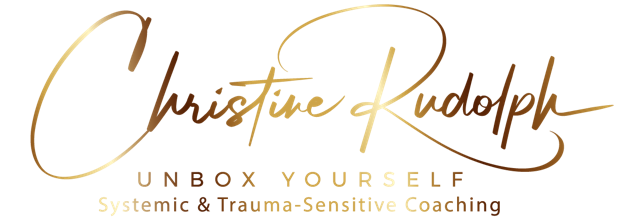Inhaltsverzeichnis
Fear of life causes liveliness to die.
Ernst Ferstl
Aliveness or liveliness is my favourite word when it comes to describing my work: bringing people back to their aliveness. As a therapist and coach, people come to me who would never say that. But they always say “I want to be able to laugh again… to enjoy the good things. Instead, I rush from one appointment to the next – and see no point in my life.”
They have – quite unnoticed – become unlively. How is that? Simply through too much work? No, of course not. What is actually being alive? Prof Dr Ruppert has defined it a little.
What does “being alive” mean?
Human life is breathing, moving, eating, drinking, excreting, growing, being active, resting, opening up and protecting oneself, hurting and healing oneself, playing, working, uniting sexually, conceiving and giving birth, helping children into life… and finally die. Being alive can be described with words such as intense, dynamic, soft, flowing, in contact.
In contrast, expressions such as blocked, congealed, hardened, fossilised, frozen, calcified, ossified, woody, rigid, over-controlled or isolated indicate that an organism radiates little vitality.
Liveliness is associated with an attitude of friendliness towards one’s own life and other living beings. Being inanimate is expressed in an indifferent, unfeeling, uninvolved or even openly hostile attitude. It is only on the basis of being inanimate that people are able to stage wars, carry out terrorist attacks and make life difficult for each other. Those who are alive love life.
In order to be alive, a human organism needs a life-friendly environment – according to its stage of development. This includes clean air, clean water, good food, protection from heat and cold, sufficient space for movement, relationships that provide support and promote autonomy and, above all, other people who develop constructive social systems. Living people create a healthy environment. People who have frozen their vitality carelessly destroy their environment and make the earth uninhabitable in their struggle for survival.
Franz Ruppert, Mein Körper, mein Trauma, mein Ich, Kösel Verlag, 2017, 2. Auflage, S. 14/15, translated from German

We feel liveliness and vitality above all when we are enthusiastic about something.
Ernst Ferstl
Liveliness: inspiring friendliness with all beings
Liveliness in life is therefore:
- Intensity
- Dynamic
- Flowing
- In contact
- Kindness
Lifelessness sounds completely different:
- Blockage
- Freezing
- Isolation
- Indifference
- Hostility
A person who has become un-alive may work in a job that is “safe”, even though they have no passion for this job. Or they are trapped in many (inner) concepts in their life, which they are not very aware of. Or he is in a relationship “because of the house”, even though he has no emotional attachment to the relationship.
What I’m getting at is the lack of attachment to what you do. You “just do it”. But you’ve never thought about whether it makes sense or not and whether you enjoy it or not.
You just live like that.
Yes, that’s what many people do! – it sounds in my ears. Yes. That’s why.
Body and emotions separated
If I as a person and individual am completely disconnected from my wishes, interests and desires – that’s when anger usually sets in. Frustration. The anger.
But not on a conscious level. The person acts outwardly around the issues that move me deep inside but that I don’t want to see: starting arguments, checking up on the neighbours, complaining and looking enviously at others. In this way, I channel my own inner pressure – without realising it myself – onto objects in my environment. I can then criticise them for all I’m worth.
But why don’t we realise this? We grow up in a world in which complaining, arguing, criticising… have become the norm in society. We simply don’t know any different. In addition, certain types of behaviour are rewarded. For example, it is considered respectable to learn a supposedly secure profession and then get married and have children.
We don’t question and – and forfeit our liveliness
And this is how conditioning, i.e. the “moulding of people”, begins in infancy. We learn what we are taught. Naturally. That’s how nature intended it.
But what if we “learn the wrong things”? Because our parents and grandparents have already learnt this?
Yes, then automation happens: it’s “normal”. Everyone does it that way. And if not, then the person is “abnormal” (and is often excluded from society in some way).
By simply adopting behaviours, explanations and entire world views without being asked, we become copies of our ancestors. All of us. Society, consisting of all of us, defines by the majority what is considered “normal” and what is not.
Even if we do perhaps question this at some point, we don’t dare to say it, show it or even do something completely different from what is “recognised”. And that’s the crux of the matter – or the fly in the ointment.
We are deceiving ourselves
With what we don’t want. What we do to “belong”. With our socially recognised life. Because everything else – following our own wishes – causes one thing: fear. Often not even consciously, but following our own call would mean being excluded from the previous “community”, i.e. neighbours, friends… possibly being excluded. And this fear is even justified. Because those who stray from the path are often seen as outsiders because they are, so to speak, resisting what “everyone is doing”. And in doing so, they unconsciously scare others.
And, of course, the fear of being excluded makes you afraid yourself. This is rooted and anchored in the oldest part of our brain. Because being excluded once meant being defenceless against the mammoth. And this still has an effect today, even if no mammoth suddenly appears.
So: most people just do what they are supposed to do.
The price: lifelessness. We freeze inside. We function. So that we can endure this – our own deception. After all, dreams are just dreams – or so we have been told.
What does this inner freezing do to us? It ensures that we only run on “emergency power”. In other words, the essential “functions” are secured, such as breathing, digesting, “coping” with everyday life. Coping means “getting through somehow”.
We are under constant internal stress. To cope with this, we freeze.

We are in freeze mode
Without realising it. Freeze mode is one of the trauma coping mechanisms or mechanisms that kick in when our nervous system is simply overwhelmed or overtaxed. Archaic emergency programme. This can be a word or a smell or simply years of doing or enduring a job that you didn’t really want. In the case of freeze, we go into shutdown.
Freeze or “freeze” may remind many of us of a cold winter’s day when everything stands still and the world sinks into a frosty slumber. In reality, however, the word “freeze” has a variety of meanings and applications.
“Freeze” in the field of psychology
In the field of psychology, “freeze” refers to the body’s reaction to a perceived threat or danger. It is part of the body’s natural “fight-or-flight” response, which also includes a third component: Freeze. Freezing can occur as a temporary paralysis or standstill that protects the body from potential predators.
“Freeze” in technology
In technology, “freeze” refers to a state in which a system or application stops responding or working. This can occur due to software errors, hardware problems or overloads. In such cases, it is often necessary to restart the system or terminate certain processes in order to resolve the “freeze”.
“Freeze” in art and culture
In dance culture, especially in breakdancing, a freeze is a position that a dancer assumes for a short period of time to achieve a certain effect or to capture the audience’s attention. These freezes can be dynamic and expressive and often require considerable physical control and balance.
“Freeze” in the economy
In the economy, a “freeze” can indicate a period of inactivity or stagnation. This can occur due to regulatory restrictions, economic downturns or other external factors. A salary or hiring freeze is a typical example of a freeze in the business world.
Although the word “freeze” can have different meanings in different contexts, it has a common theme: a state of stagnation or standstill.
Now, a standstill or even a retreat is not a bad thing in itself. But in the case of freeze, this usually happens consciously, involuntarily and often in a kind of shock. Living withdrawal into awareness has nothing to do with freeze.
Freeze is the opposite of liveliness.
People can remain in this state for years or even a lifetime. The answers to questions such as “Well, how are you?” are then very often and mostly: “Must be” or “I’m fine.” There is no joy. I’ve even met people who say they don’t even know what joy is. They don’t feel it.
Not feeling: This is the functional survival mode.
It’s nice when a person realises that “something is strange” – and they want to change something about it. Then there is the possibility of going into a process with them, like my Back to the Basics or Elements of Life process. Both are aimed at (re)sensing, recognising and consciously changing your own life.
That takes courage, of course. But when the pressure of suffering becomes greater than the endurance – and unfortunately this is usually only the starting point – then it can begin.
Whether online and/or with me in nature – I look forward to you and your courage to set off.
Warm regards, Christine.


